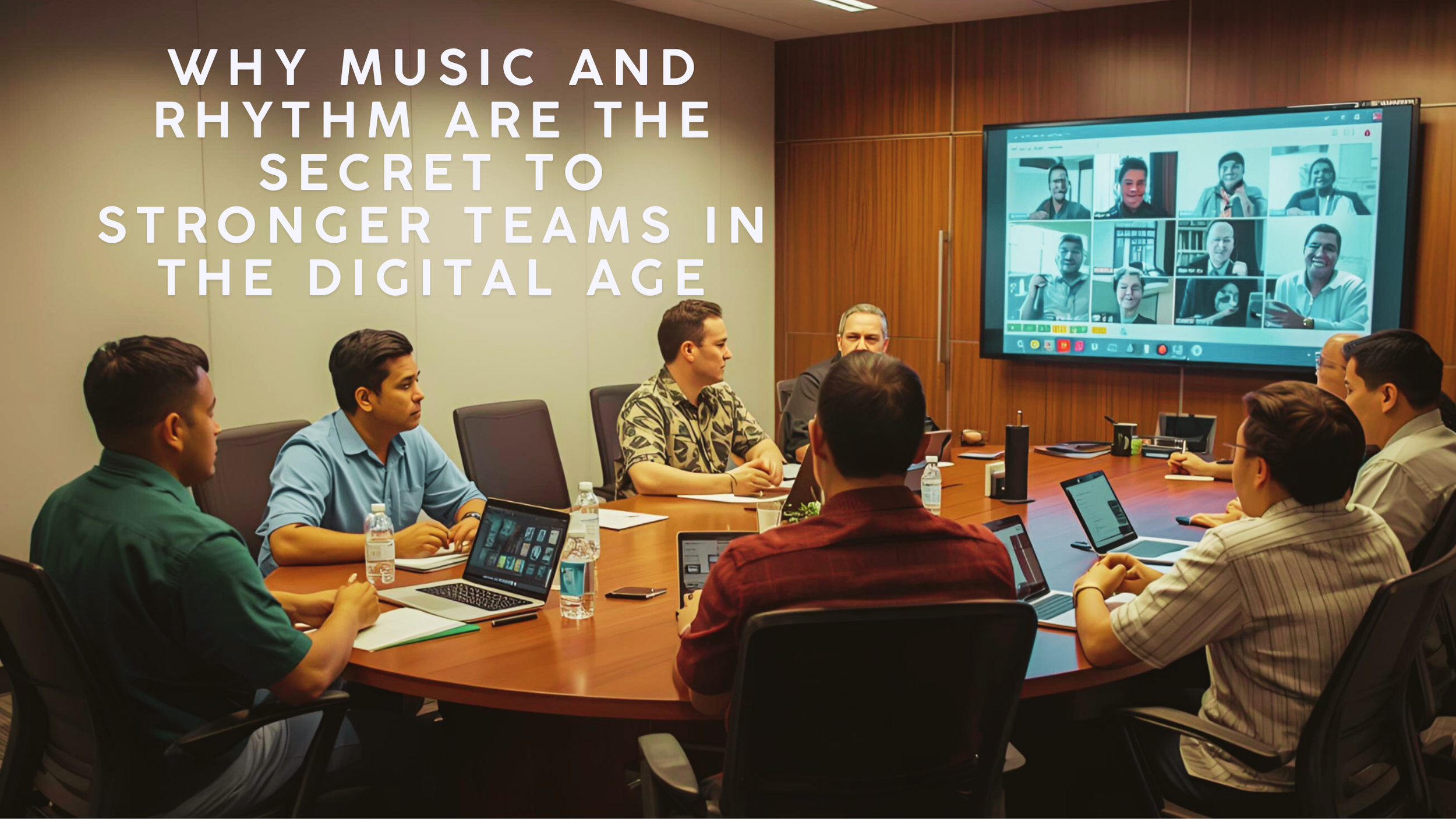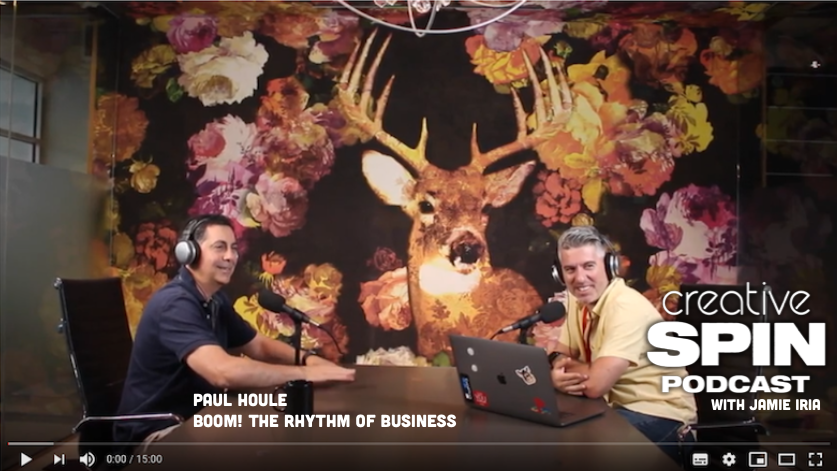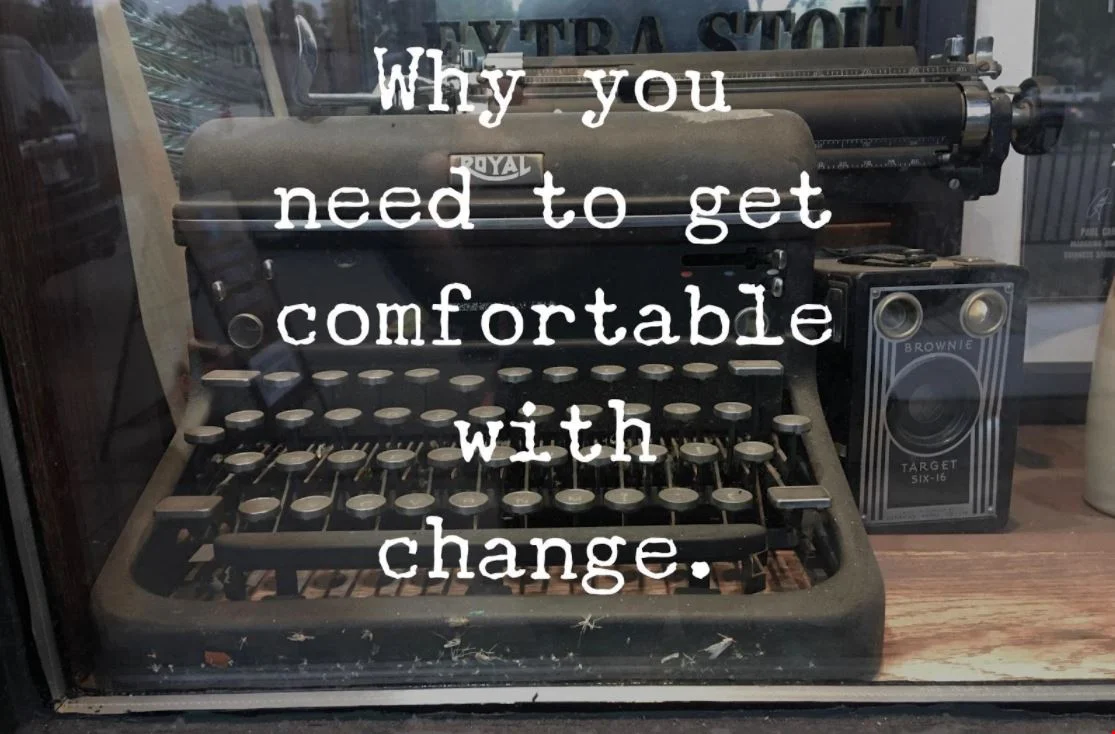
Popular Posts
Meet Paul
Paul is an expert at showing corporate teams how to be more unified and more collaborative. His proven team building program is guaranteed to bust through the silos as he shows your team how to be as unified as the players in a great orchestra.
A-list corporations have been using Paul’s team building program for almost two decades, his audiences include Microsoft, RBC, Goodyear, ING, Heineken, FedEx, PwC and P&G.

How to get people begging for your feedback!
I once made someone cry because of the feedback I gave them.
I didn't mean to, of course. But it happened.
I spent many years pursuing my dream of becoming a professional percussionist, wanting to play in an orchestra or any ensemble, for that matter, that would pay me to hit a drum. And while there was a bit of a transition period between being the student and becoming a pro, one day I was there. I, dressed in my second-hand tuxedo, was being hired and making a living (albeit meagre) as a freelance player in the big smoke.
Shortly after that, I found myself no longer the student but the teacher when I applied for and got hired by the Royal Conservatory of Music as a percussion instructor.
And while my playing resume was not too shabby by then, my teaching experience was limited and no one had ever talked to me about how to give good feedback to my students.
All I had was what I had experienced myself, the way I had been taught, the good and the bad.
I left the Conservatory a few years ago after having given feedback in over 15,000 private lessons and in some 2000 rehearsals.
While I did make someone cry once (ok maybe twice), I did figure out a few things about getting people to really want the feedback you have to offer.
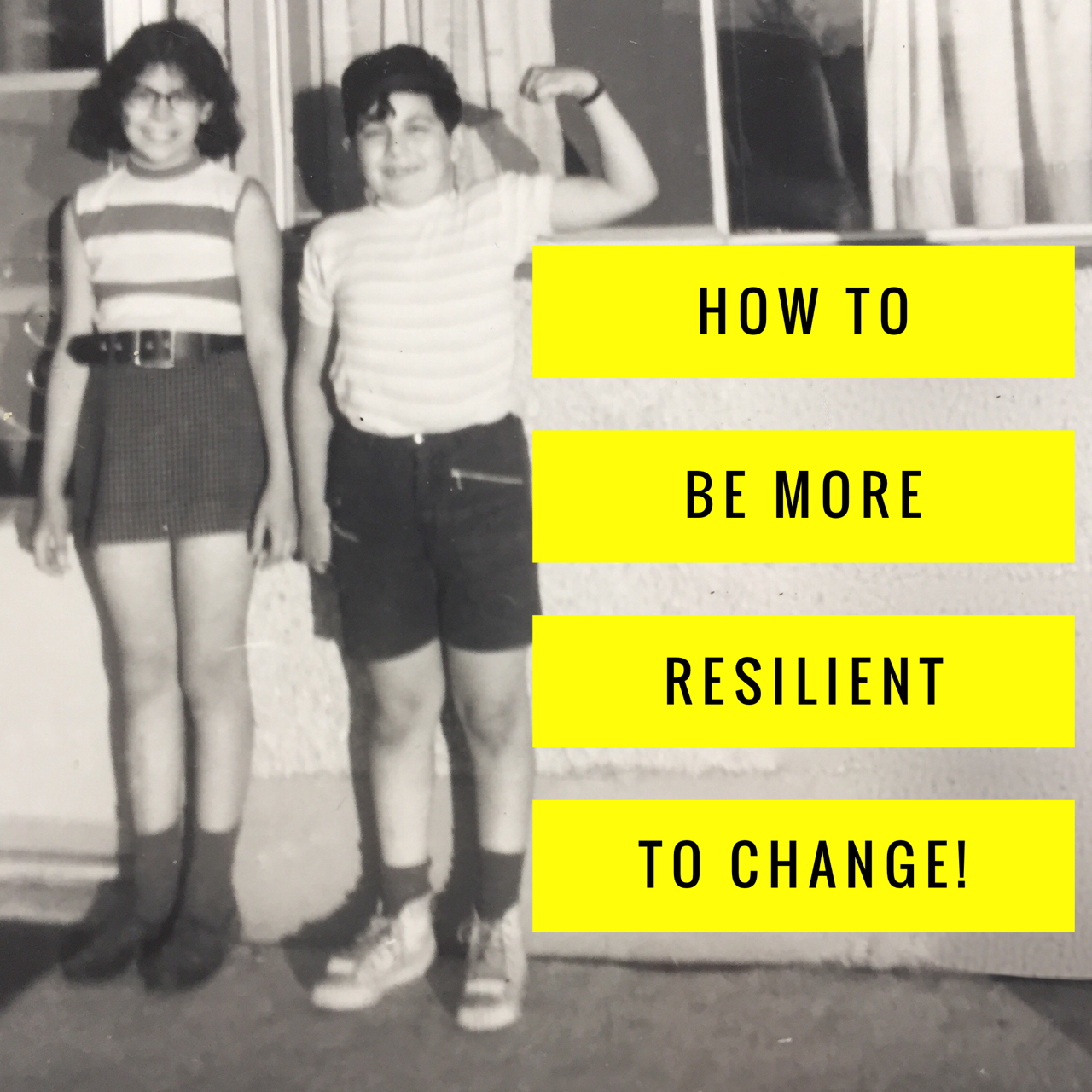
How to be more resilient to change!
If you were like me, as a kid, you faced change head on and did so pretty often.
Every year, you’d get a new teacher, were put in a new class or sent to various lessons, played on new sports teams. In summer, you’d go to camps with new kids and group leaders.
I don’t know about you, but I don’t ever remember being asked, “Hey Paul, would you like to do this or that?” I just remember ending up in a lot of new situations. It just happened and I had to deal.
We may not have realized it but, as kids, change was around every corner and yes, sometimes it was scary. But you know what? We dealt and I don’t ever remember complaining about “change”.
We had resilience.
So now that we’re all grown up, where did our resilience go, and more importantly – how can we get it back?
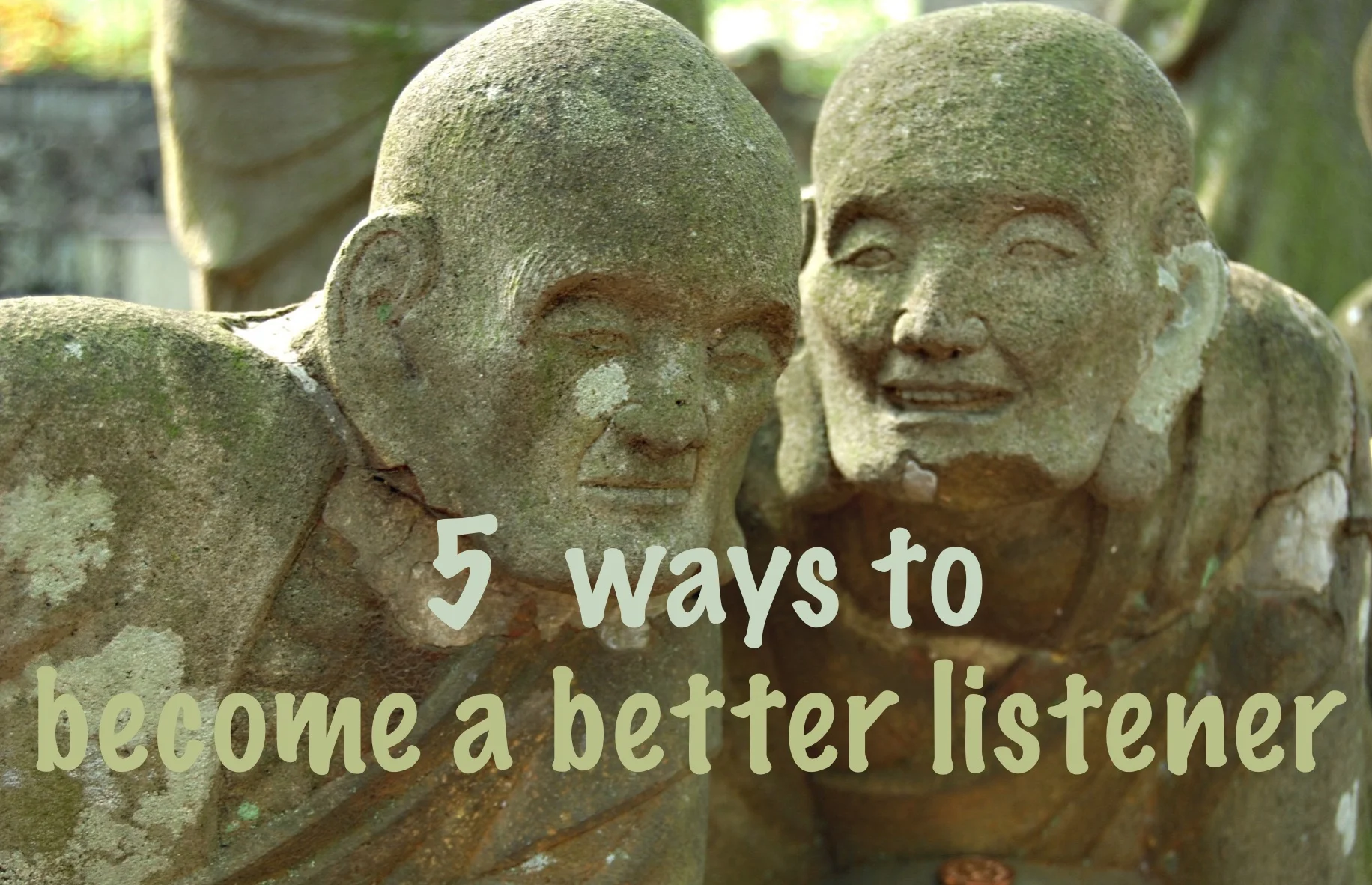
5 ways to become a better listener
When I first started on my path to becoming a professional musician I didn’t realize that being able to listen well was going to be my survival skill.
I didn’t realize that it didn’t matter how many notes I could play on whichever instrument.
I didn’t realize that I could make or break a rehearsal or performance by how much I used my listening skills, thereby lengthening or shortening my career.
Fortunately for me, I learned to listen and listen well. And when I really think of it now, over the years, I have listened more than I have played, and that’s a good thing. I'll repeat that - I have listened more than I have played. Many thanks to my teachers and colleagues for telling me ( No, yelling at me) to "LISTEN!".
How about you? How many times have you thought about saying it to a colleague or employee: “I wish you would just listen more?”

5 ways to make someone feel like part of the team.
I’m curious. Do you have a story about your first day at work at a new job? Your first week? Are you like me in that it’s been a while since you were a newbie on a job? From what I remember, I walked around, kept my mouth shut, kept my head down and tried my best to get a handle on things. Some people were friendly and some, not so much.
In the 12 months to May of this year, employment increased by 109,000 or 0.6%, the result of gains in full-time work. That’s a lot of new faces walking around new workplaces.
There are some great things going on like workplace mentors and buddy systems. I even came across a piece of software that busts through the silos by helping new hires connect with people in other parts of the company who might be from the same school or share the same hobbies or interests called Parklet. Pretty cool.
Certainly, all that helps, but have you ever thought about what part you could welcoming people to your organization? You should because you could have a greater impact than you think.
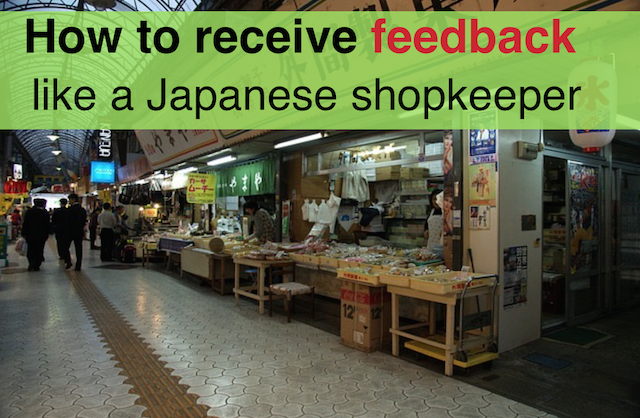
How to receive feedback like a Japanese shopkeeper
Developing a positive attitude around honest feedback of any kind is a difficult thing to do. If we are the ones on the receiving end and if the feedback is poorly delivered (see blog on giving good feedback), it can be like a punch in the stomach, knocking the wind out of us. In some cases it can cause us to lose sleep at night. It can even make us question if we are working in the right organization. But good honest feedback is one of the most valuable tools for you and your organization.
As a matter of fact, a 2010 study by the Corporate Executive Board, as cited in a recent article from the New Talent Times, found that companies which encouraged honest feedback among their staff, and that were rated highly in the area of open communication, delivered a 10-year total shareholder return that was 270 percent more than other companies—7.9 percent compared to 2.1 percent.
As a musician I have a lot of experience both giving and receiving feedback (it is a constant in that world) but my whole perspective was changed a few years ago by an experience I’d like to share with you.

